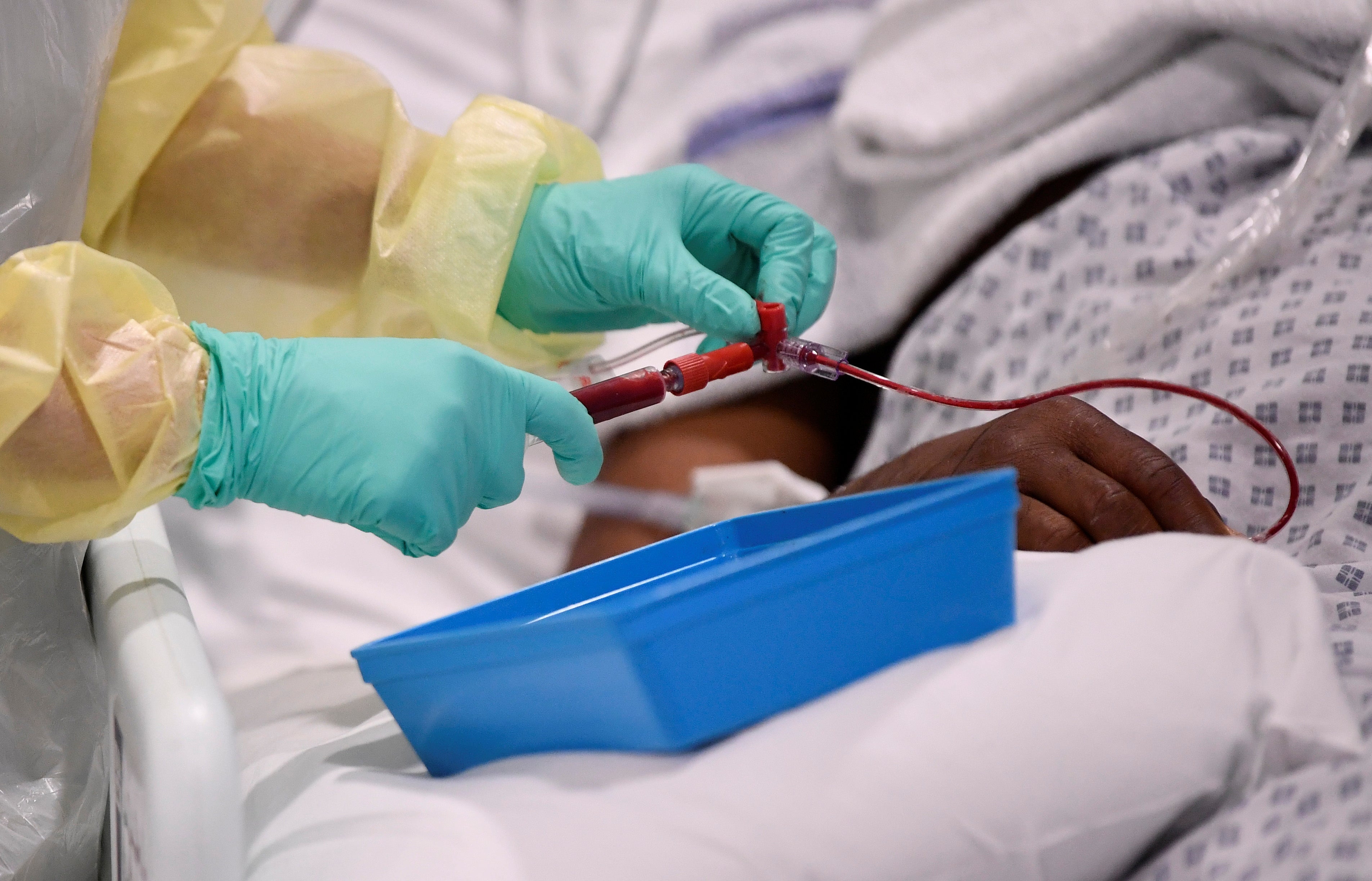High use of antibiotics in UK Covid patients ‘unnecessary and risks worsening drug resistance’
Around eight in 10 coronavirus patients admitted to hospital are prescribed antibiotics, but experts say such medicines are often not necessary, writes Tom Batchelor


The “very high use” of antibiotics in Covid patients in UK hospitals is “unnecessary” and risks worsening antimicrobial resistance around the world, researchers have warned.
A University of Glasgow-led study found that antibiotics were frequently used for those suffering with coronavirus, particularly during the first wave of the pandemic, despite confirmed bacterial infections for which the drugs are necessary being uncommon.
The research, published in The Lancet Microbe and conducted with help from experts at the Universities of Edinburgh and Liverpool and Imperial College London, found that 85 per cent of Covid patients received one or more courses of antibiotics during their hospital admission, with the highest use in critical care.
Researchers also found that more than a third of patients (37 per cent) were prescribed antibiotics prior to even being admitted to hospital.
Dr Antonia Ho, lead author of the study from the MRC-University of Glasgow Centre for Virus Research, said not all patients who had been given antibiotics should have been prescribed the drugs.
“Until now, a detailed understanding of the nature of bacterial co-infections identified in patients with Covid-19, and the frequency and types of antibiotics these patients have been prescribed has been lacking,” she said.
“This study demonstrates the very high antibiotic use we see in hospitalised Covid-19 patients may not be necessary, indeed it may contribute to antimicrobial resistance.
“While some Covid-19 patients will require antibiotics, mostly for secondary infections which develop after admission to hospital, our data shows that not all Covid-19 patients should be prescribed antibiotics.
“The longer someone is in hospital, particularly if they are in critical care, the more vulnerable they are to develop secondary infections, and these should continue to be monitored.
“However, the bugs we identified are similar to those found in patients with hospital-acquired infection, and not specific to Covid-19.”
The University of Liverpool’s Prof Calum Semple, co-lead of the study, said: “We only have safe surgery and medical cures for many life threatening conditions because antibiotics were discovered and mostly still work.
“Overuse of antibiotics needs to be avoided to prevent emergence of resistance. When the current threat from Covid-19 subsides, the problem of antimicrobial resistance will remain a threat.”
As part of the Isaric (International Severe Acute Respiratory and Emerging Infections Consortium) study, scientists looked at data from nearly 49,000 Covid-19 patients admitted to 260 hospitals in England, Scotland and Wales.
Of 8,649 patients with recorded blood tests, bacterial infections were detected in 1,107 of them – a detection rate of around 13 per cent.
By contrast, the researchers said bacterial co-infections were far more common with severe influenza, occurring in nearly a quarter of patients.
Antimicrobial resistance occurs when bacteria no longer respond to the drugs made to kill them, making even minor infections potentially fatal.
Health experts have previously warned that resistance to antimicrobial drugs could cause a bigger threat to mankind than cancer.
Hundreds of thousands of people around the world die annually due to drug-resistant infections including tuberculosis (TB), HIV and malaria.
If no action is taken, it has been estimated that drug-resistant infections will kill 10 million people a year by 2050.
According to the World Health Organisation (WHO), antibiotic resistance is one of the biggest threats to global health, with an estimated 700,000 deaths worldwide every year.
Join our commenting forum
Join thought-provoking conversations, follow other Independent readers and see their replies
Comments
Bookmark popover
Removed from bookmarks